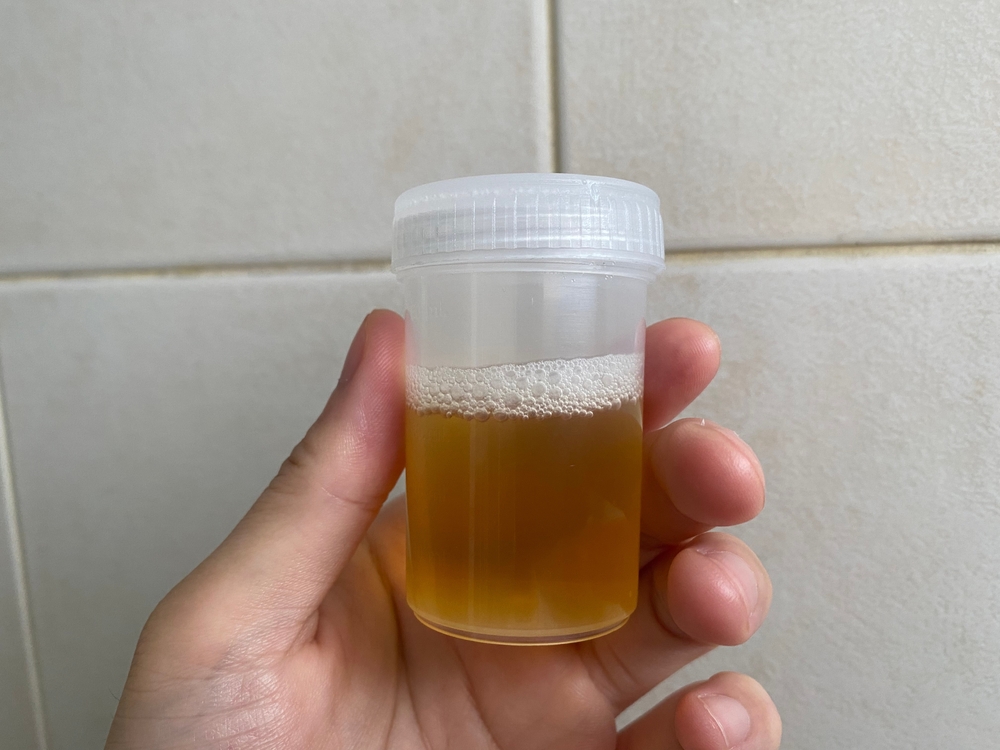A routine medical checkup revealing protein in your urine can raise concerns. Your body needs protein to function properly, but its appearance in urine suggests potential issues with your kidney’s filtering mechanism.
Many patients feel anxious about discovering protein in their urine samples. Medical professionals refer to this condition as proteinuria. The causes range from temporary factors like strenuous exercise to serious health issues that need immediate medical care.
This detailed piece covers the root causes of urinary protein, normal protein levels, and available treatment options. You’ll learn the right time to contact your doctor and discover beneficial lifestyle changes that could help manage your condition effectively.
Understanding Protein in Urine Basics
Let’s tuck into how protein shows up in our urine and what it means for our health. The way our kidneys handle proteins deserves a closer look, and you should know when protein levels need attention.
What is normal protein content in urine
A small amount of protein in urine is normal. Our bodies keep urinary protein below 150 milligrams daily 1. This amount equals about 3% of a teaspoon 1.
How kidneys filter protein
Our kidneys work as amazing filters with hundreds of thousands of tiny filtering units called nephrons 1. Each nephron has a glomerulus – a cluster of specialized blood vessels that act as our body’s protein gatekeepers 2.
Our kidneys manage proteins this way:
- The glomeruli filter blood and block larger proteins
- Kidney tubules reabsorb most smaller proteins that pass through
- The filtering system uses special negative charges to push back proteins like albumin
Our kidneys filter 180 liters of fluid daily 3. This equals nearly 50 gallons of water. This process keeps essential proteins in our bloodstream where they need to be 2.
When protein levels become concerning
Protein levels that go beyond 150 milligrams per day need attention 4. Your healthcare provider might ask for three urine tests over three months to check if you have an ongoing issue 2.
High protein in urine can signal kidney damage before other symptoms show up 5. The protein amount associates with kidney damage severity – more protein means a bigger issue might exist 1.
Some conditions can raise protein levels without serious problems. These include hard exercise, dehydration, and emotional stress 1. But protein levels that stay high usually need medical checks 5.
Temporary Causes of Protein in Urine
The sort of thing I love about temporary protein in urine is how common triggers can cause short-term spikes in protein levels. These fascinating temporary causes can affect our kidney’s filtering function.
Exercise and physical stress factors
We found something remarkable about exercise-induced proteinuria – intensity matters more than duration 6. Strenuous exercise can push protein excretion above 1.5 mg/min 6. The levels return to normal within 24 to 48 hours after exercise 6.
Here’s what happens during exercise:
- The original protein spike happens 30 minutes post-exercise
- A second small rise occurs around 24 hours later
- High-intensity sports like running and boxing show stronger effects
- Professional athletes deal with this temporary effect too
Dehydration and environmental impacts
Dehydration has a big effect on how our kidneys filter proteins. Normal blood volume helps kidneys filter waste better when we stay hydrated 7. But dehydration concentrates wastes and minerals that can block the filtration system 7.
The environment plays a vital role too. Very cold temperatures or extreme heat can trigger temporary proteinuria 8. These conditions put extra stress on our kidney’s filtering mechanism.
Temporary medical conditions
Many short-term medical conditions lead to increased protein in urine. Fever and acute illnesses stress our body and kidneys 9. UTIs often show higher protein levels and come with other symptoms [37, 38].
Sleep patterns can affect protein levels in urine too. Research shows protein levels rise in people who sleep less than 8 hours 10. Scientists haven’t fully understood the mechanisms yet, but this explains why good sleep habits matter for kidney health.
Chronic Medical Conditions Leading to Proteinuria
Let’s get into the chronic medical conditions that guide persistent protein in urine, now that we’ve covered temporary causes. These conditions need long-term management and careful monitoring.
Diabetes and blood pressure related causes
Diabetes ranks as the primary cause of kidney disease in developed countries. It affects about 40% of both Type 1 and Type 2 diabetic patients 11. The numbers tell a compelling story – albuminuria reaches 28.8% in people with diabetes and 16% in those with hypertension 12.
High blood pressure combined with proteinuria increases the risk of kidney damage and cardiovascular complications by a lot 13. Blood pressure that stays high typically causes renal impairment, and protein excretion develops over time 13.
Kidney disease and damage
Proteinuria acts as an early warning sign in chronic kidney disease (CKD). Protein in urine often signals that kidneys aren’t filtering properly 8. The relationship is clear: healthy kidneys don’t remove proteins from blood, but damaged kidneys may let these vital proteins leak into urine 8.
Kidney damage follows a troubling pattern. Persistent proteinuria occurs twice as often in males compared to females 4. The risk increases by a lot with age because hypertension and diabetes become more common 4.
Other systemic diseases
Several serious conditions can cause proteinuria besides diabetes and hypertension:
- Immune disorders like lupus
- Multiple myeloma (blood cancer)
- Cardiovascular disease
- Preeclampsia in pregnant women
- Amyloidosis (protein buildup in organs)
- Heart failure 14
Persistent proteinuria affects 15.3 per 1,000 person-years 4. The situation becomes more concerning as diabetes rates continue to rise, which steadily increases proteinuria prevalence 4.
Lifestyle and Environmental Risk Factors
Your lifestyle choices make a significant difference in managing protein levels in urine. Research shows that your diet and lifestyle can substantially affect your kidney health.
Diet and nutrition impacts
Protein consumption needs careful attention. Research indicates that consuming more than 1.68 grams of protein per kilogram of weight daily leads to increased protein in urine 15. Your daily protein intake should stay around 0.8 g/kg – about 56 grams for adult males and 46 grams for adult females 15.
High salt intake raises serious concerns because it affects kidney filtration. Studies reveal that lowering salt intake from 10 grams to 5 grams daily helps reduce proteinuria substantially 15. The 2020-2025 dietary guidelines suggest consuming less than 2.3 grams of salt daily 15.
Daily habits affecting protein levels
Research points to specific eating patterns that raise proteinuria risk:
- Eating dinner late increases proteinuria risk 16
- Missing breakfast raises proteinuria onset risk 16
- Eating quickly shows no substantial impact 16
Exercise has two sides in managing protein levels. Intense workouts might temporarily increase protein in urine. However, moderate exercise helps regularly. Swimming for 30 minutes twice weekly over three months helps reduce urine protein in patients with chronic kidney disease 15.
Preventable risk factors
Smoking stands out as one of the most important modifiable risk factors. A six-year study showed that people who quit smoking reduced their proteinuria risk by 50% compared to those who continued 15.
Weight control is a vital factor. A moderate weight helps manage conditions that affect kidney function 17. Over-the-counter NSAIDs (ibuprofen, aspirin, naproxen) can cause sudden kidney damage and increased protein output 15.
Research indicates a strong connection between dietary habits and lifestyle-related diseases 16. To cite an instance, changing from animal to plant-based proteins helps reduce kidney strain. Vegetable proteins have been found to affect renal function less 18.
Conclusion
Protein in urine is a vital indicator of our overall health. It can range from temporary spikes after exercise to signs of serious kidney conditions. Our research and clinical experience shows how simple lifestyle changes work well to manage protein levels. These changes include less salt intake, proper hydration, and moderate exercise.
Professional medical guidance is needed when protein levels stay above normal ranges. A temporary increase might not worry you right away. But ongoing proteinuria needs a doctor’s attention, particularly if you have diabetes, high blood pressure, or kidney disease.
Prevention works better than treatment in most cases. Smart food choices, a healthy weight, and avoiding habits like smoking can lower your risk of kidney’s protein-related problems. Regular check-ups with primary care doctor detect potential issues early. This leads to better outcomes and easier management of any health conditions you might have.




